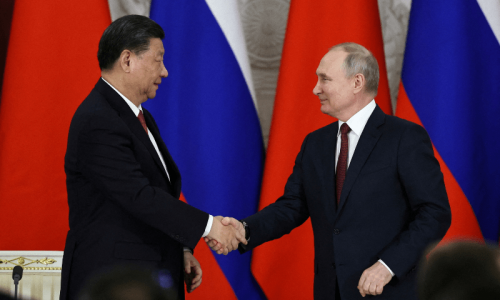BRASILIA: As many as 2,000 of Brazil’s indigenous people marched on Thursday through the capital to protest what they say is an unprecedented governmental assault on their rights and lands.
Every April, members of Brazil’s indigenous groups descend on Brasilia to press their concerns in the halls of power. But leaders say their situation has become more precarious since President Michel Temer took office in 2016 and began instituting what they call a systematic rollback of indigenous rights and protections.
During this year’s weeklong “Free Land Encampment,” indigenous groups have focused their ire on a rule adopted in July under which authorities can only designate lands as belonging to indigenous people if they were occupied in 1988, the year Brazil’s Constitution was adopted. Indigenous groups argue that the requirement ignores the history of dispossession in Brazil which was especially brutal during the 1964-1985 dictatorship.
The rule will make the recognition of new indigenous lands virtually impossible, activists say, and could even be used to claw back already designated land. That could open the lands up to logging, grazing and other business interests and could have serious implications for Brazil’s ability to protect its environment and stem deforestation.
On Thursday, indigenous people many wearing feathered headdresses or body paint walked through central Brasilia. In front of the Justice Ministry, a handful of people lied down on a Brazilian flag and a sign that read, “End of the indigenous genocide.” “Never, in the past 30 years, has the Brazilian state opted for a relationship so completely adverse to the rights of indigenous people,” the Coalition of Indigenous People of Brazil said in a statement earlier in the week.
Published in Dawn, April 27th, 2018












































Dear visitor, the comments section is undergoing an overhaul and will return soon.